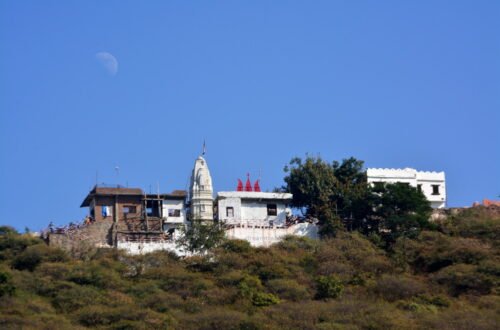Jaisalmer, known as the Golden City, holds more than just architectural beauty. It is a living museum of culture where centuries-old traditions still breathe through daily life, art, music, and rituals. Nestled in the heart of the Thar Desert, this historic town invites travellers not only to explore its majestic fort and havelis but also to immerse themselves in its vibrant cultural essence.
What Makes Jaisalmer’s Culture Unique?
The culture of Jaisalmer is deeply rooted in its Rajput heritage. From its royal history to local customs and desert lifestyles, everything speaks of resilience, pride, and colour. This region has managed to preserve many ancient practices, especially in art, music, and attire, offering a glimpse into a way of life that remains untouched by modern rush.
Traditional Art and Craft in Jaisalmer
Jaisalmer is widely known for its remarkable craftsmanship. The city’s artisans are masters in carving stone, wood, and even leather. Visitors can often see locals creating mirror-embroidered textiles, patchwork quilts, and intricately designed jewellery. One of the most popular items is the camel leather bag, a specialty that reflects desert craftsmanship.
Wood carving, another age-old skill, decorates windows, balconies, and doors across the city. These handcrafted works are not just souvenirs but also reflect the history of desert living and community expression.
Folk Music and Dance: A Living Tradition
Music is an integral part of Jaisalmer’s cultural identity. Local communities like the Manganiyars and Langas have passed down musical knowledge over generations. Instruments like the kamaicha, dholak, and algoza create haunting tunes that tell stories of love, war, and devotion.
Equally enchanting are the traditional dances like Ghoomar and Kalbelia. These are often performed during festivals and cultural evenings. The dancers, dressed in swirling black or red outfits, accompanied by rhythmic beats, bring Jaisalmer’s spirit alive in the night.
Festivals That Reflect Jaisalmer’s Soul
Festivals in Jaisalmer are not just occasions—they are cultural showcases. The most popular is the Jaisalmer Desert Festival, held in February. During this three-day celebration, visitors witness camel races, turban-tying contests, puppet shows, and musical performances. The entire city glows with activity, making it a perfect time to witness local culture in its purest form.
Other important festivals include Teej, Diwali, and Gangaur, each celebrated with colourful processions, local sweets, and folk rituals that demonstrate devotion and community bonds.
The Role of Desert Lifestyle in Culture
Life in the desert has influenced every aspect of Jaisalmer’s culture. From food habits to housing, locals have adapted wisely. Mud houses with thatched roofs, use of traditional water storage systems, and solar cooking are some examples of sustainable living.
Daily meals are simple yet flavorful, using millet, pulses, and preserved vegetables. Dishes like ker sangri, gatte ki sabzi, and bajre ki roti are traditional and healthy.
This eco-conscious way of living connects closely to the region’s cultural outlook—simplicity blended with strength.
Architecture That Tells Cultural Stories
The architecture of Jaisalmer is more than stone and design—it is a cultural statement. The Jaisalmer Fort, built in 1156, houses several generations of families who still live and work inside. Its yellow sandstone glows under the sun, giving it the name “Sonar Quila.”
Havelis like Patwon Ki Haveli and Nathmal Ki Haveli are adorned with carvings that reflect scenes from mythology, daily life, and nature. These structures not only exhibit royal elegance but also the cultural mindset of a community that valued artistry and storytelling through construction.
Cultural Experiences Through Stay
One of the most immersive ways to experience Jaisalmer’s culture is through a desert stay. A carefully planned experience at a Desert Camp in Jaisalmer allows you to see the lifestyle of desert communities up close. Local performances under the stars, traditional meals served in open dunes, and storytelling by local guides give depth to your cultural journey.
These camps often host evenings where folk artists showcase their skills, and guests are welcomed with customary aarti and tilak. It’s not a performance—it’s a tradition unfolding in front of you.
A Night Inside a Luxury Tent with Tradition
For travellers who wish to combine cultural authenticity with comfort, staying in a Luxury Tent in Jaisalmer offers the best of both worlds. These tents are designed with traditional interiors, local fabrics, and handcrafted decor while maintaining modern comforts. Each element—from the bed linens to the flooring—tells a cultural story, often inspired by desert themes and Rajasthani motifs.
The hospitality you receive reflects the deep-rooted values of honouring guests, a trait that Rajasthani culture holds dearly.
Why Cultural Understanding Matters
Exploring Jaisalmer’s culture helps you go beyond sightseeing. It connects you to a community shaped by sandstorms, legends, and pride. Every interaction—be it a local sharing chai, a child learning traditional dance, or a craftsman working on leather—adds another layer to your travel memory.
When travellers engage respectfully with the local culture, it not only enriches their experience but also supports the preservation of traditions that might otherwise fade.





